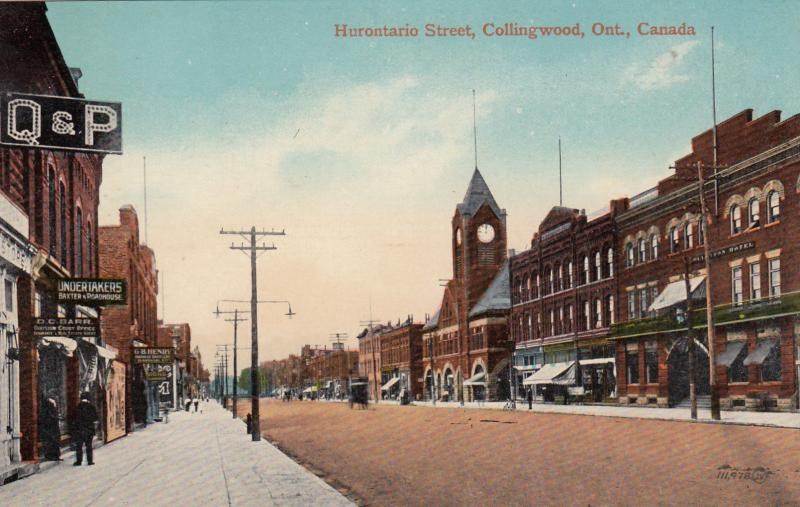I was searching for a death registration on a genealogy website the other day when I stumbled upon the records for two people of the same last name who had died on the same day in 1893. One was a 98-year-old woman and the other a two-year-old girl.
The handwriting on the old record was poor and I couldn’t make out the cause of death. Likely, the two had succumbed to one of the many contagious diseases of the time. On that day, I was feeling curious enough to find out and the answer I got was not at all what I expected.
Mary Ann Wonch and her granddaughter, Maisy Wonch, had been murdered.
Of course, this discovery sent me off digging for more information and what I found were reports of the most unfortunate family. The Wonch clan had become rather notorious in the area surrounding Collingwood during the last decades of the nineteenth century.
The full story of the Wonch family will likely never be known as they were secretive people who lived in a secluded spot in a rural area while the local rumour mill churned out all sorts of wild tales about them. Some of it was true, some of it was not, which only serves to cloud the lamentable saga.
The former Mary Ann Ogden, who was likely not nearly as old as recorded, was born in Upper Canada to American parents, possibly United Empire Loyalists, who had fled post-Revolution unrest in the United States. They settled in the area of present-day Markham.
Mary Ann married William Berry in Markham around 1830 and the couple had two children. In 1835, widowed Mary Ann married George Wonch who came from another Markham connected family with likely American roots. From this union, Mary Ann gave birth to 11 more children.
Exactly when they migrated to the woods outside Collingwood, I do not know, but they were listed there on the census of 1861.
As I searched for more details of the double murder, I began to find newspaper accounts of other tragic circumstances that had befallen family members years before the 1893 event. In June 1881, a Northern Advance reporter seemed to think he was rather humorous when he inserted this brief piece in the newspaper.
“Collingwood’s Chief Cop is looking out for Annie Wonch, whom he Wonch on a charge of abduction. You, Annie, this way at Wonch!” No more details were given.
Circumstances, in all probability, got worse with the death of George Wonch in 1883. Widowed Mary Ann was now elderly and reliant on her adult children for her care. It also appears that at least one of her sons, John ‘Jack’ Wonch, was intellectually challenged and also needed support.
The next reported misfortune occurred in 1885. William Wonch, Mary Ann’s son, was born about 1854 and married a neighbour girl, Elizabeth Leopard/Leppard in 1877. In a house, reported to be on the northern outskirts of Barrie, a fire broke out on the night of June 5. This home, belonging to William Wonch, burned to the ground killing his wife and all of their four children, ages one month up to six years. William, who jumped from a window, was the only survivor.
In 1881, one of Mary Ann’s daughters, Eliza Jane ‘Jenny’ Wonch, married James Leopard/Leppard who was a brother to William Wonch’s wife. The census of that year finds Jenny and James, already the parents of four children, living next door to Jenny’s parents and just down the road from her brother, James Wonch.
Some time between that census and the next, the marriage between James and Jenny broke down. By that time, there were at least seven children belonging to the couple. Wherever James had gone, Jenny been left to struggle alone and moved in with her mother, Mary Ann Wonch. Some of her children were fostered out to neighbouring families while others accompanied her to their grandmother’s home.
Circumstances were becoming quite dire at the isolated homestead of the Wonch family.
Each week, the Barrie Historical Archive provides BarrieToday readers with a glimpse of the city’s past. This unique column features photos and stories from years gone by and is sure to appeal to the historian in each of us.
